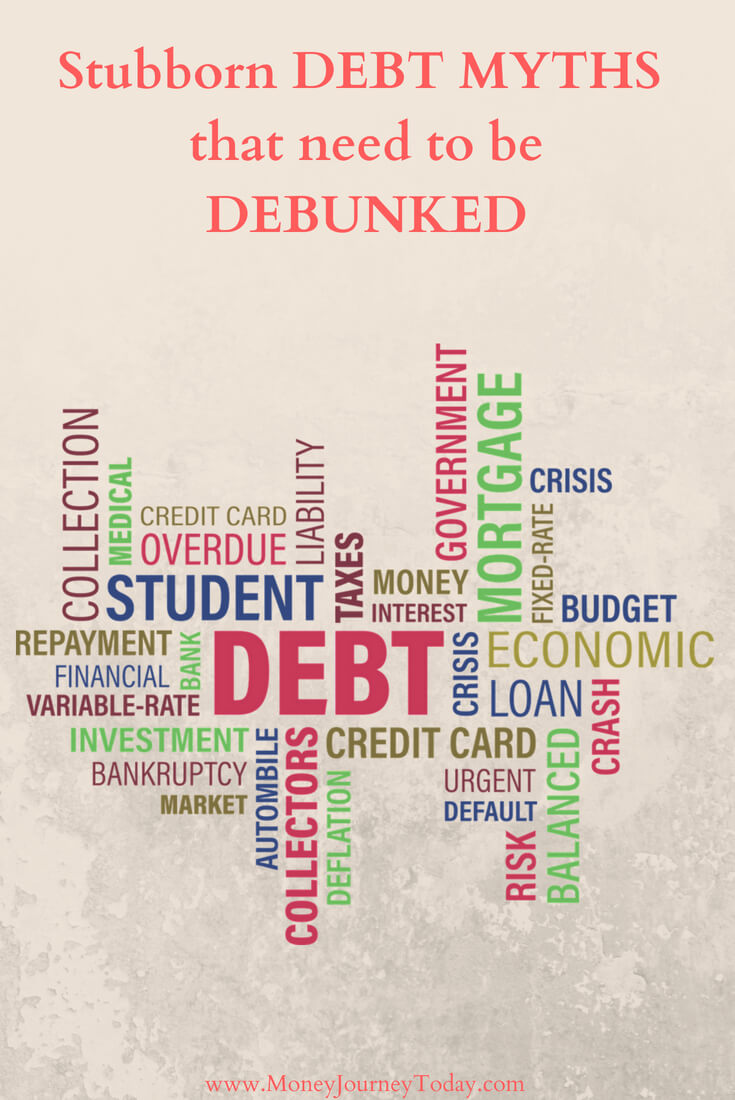There’s a lot of misconceptions about debt that can lead people into bad financial situations simply because they think they’re doing the right thing. Here are eight debt myths that really need busting, so people can have healthier finances.

All debt is bad news
Debt is a loaded word – we think of red letters, bailiffs, worry and eating cheap noodles every day.
In actual fact, some debt is good, especially if it’s well-managed. Having credit can improve your credit rating, which can help you to get loans, overdrafts and mortgages down the line. Speaking of mortgages, these are also considered to be good debts because a home loan is a long-term investment that often ends up making money.
Debt advice costs a fortune
Some debt advice services charge fees, but these fees are never more than you can reasonably afford and if your total debt is reduced, or you’re able to extend the repayment period, then the fees are worth it. Setting up a debt management plan from, for example, takes a lot of the stress out of dealing with creditors.
Overdrafts are excessively expensive
Overdrafts are one of the UK’s most common forms of debt. Many people go into overdraft regularly, even if they come back out sharpish. If you’re one of the many and you’re charged daily for your overdraft, then you should look around for a current account that either doesn’t charge for a pre-set overdraft or only charges nominal fees.
Joint accounts mean you only have half the responsibility
This is a really common misconception. In actual fact, both parties in a joint account are responsible for the full amount. So, if your partner fails to pay his or her debt, you’re responsible for the full amount – not half of it.
Defaulting on your credit card can land you in jail
You can get a County Court Judgement (CCJ) if you fail to pay your debts, but you definitely can’t go to jail.
Your CCJ will stipulate that you have to pay some or all of the debt to the creditor. If you can’t make the payments, then you may be legally forced to agree to an “attachment of earnings”, which is where some of your earnings are taken at source to pay your debt. You could also be faced with a “charging order”, where your home is sold and the creditor takes a pre-agreed cut of the proceedings.
Bailiffs can come into your home
Bailiffs are scary figures, but they actually don’t have as much power as you may imagine. They can’t force their way into a property and can only get in through an open door or window. They can force entry if the debt is a criminal fine, VAT or income tax, but this is only when all other avenues have been exhausted.
Bankruptcy lasts forever
Bankruptcy is very serious and should only ever be an absolute last resort, but it only lasts for a year and is on your credit file for six years. The five years after bankruptcy ends and it’s still on your file will see your credit rating at a low, but you’re not bankrupt anymore.
Your personal credit rating affects other household members
This is just wrong. Your personal rating is just that and it won’t have any impact – good or bad – on anyone else’s.
[…] are few things in life that are more overwhelming than being in serious debt. Whether your debt is due to circumstances outside of your control – such as a job loss or […]